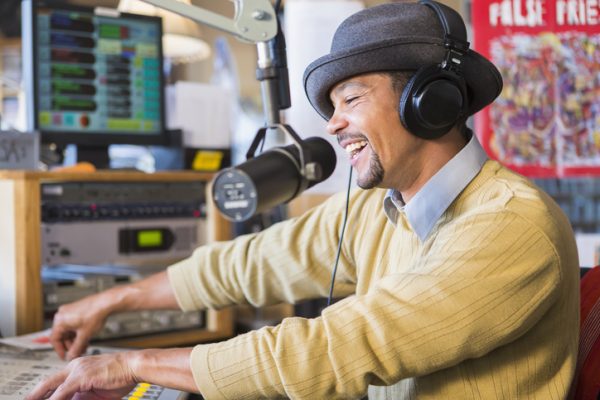Author: Tammy Greenberg, SVP/Business Development, RAB
Consumers have strong expectations that the brands they choose both support and align with the values that are important to them. Recognizing what drives consumers, brands are laser-focused on living their mission, principles, and ethics. As such, brands market their products and services grounded in that mission and the shared values and beliefs between the brand and its target customers.
Giving back to community, lending resources of support, promoting social consciousness, doing what is good for the environment, and inspiring change are just a few examples of shared values in action. Brand messaging articulates both why the brand’s mission matters and to bring communities of people together to advance the values it supports while creating long-lasting relationships and loyalty.
In a recent RAB live online presentation to its members, Karriem Edwards, vice president of development for the Boys and Girls Club of Broward County, referenced Michael Porter, a well-known strategist and professor at Harvard University. Mr. Porter spoke about shared value strategies and how businesses must make local community a part of their business strategy to succeed.
Karriem pointed to his organization’s partnership with the Cox Radio Group in Miami, where community is central to its business strategy. This benefits the organization beyond measure. This is true for radio stations across the country. Community and shared values are local radio’s DNA.
Community, trust, reach, personal, uplifting, authentic, local, enjoyable, essential, lifesaving, relaxing, engaging, regulated, actionable– these are the attributes that brand marketers should find when identifying the environment to share their stories, their mission, and their values.
Nonprofit organizations understand this, which is why their reliance on local radio partnerships is prioritized and delivers strong results, according to Tim Delaney, president and CEO of the National Council of Nonprofits. For-profit brands that follow the lead of mission-centric organizations will be rewarded with loyal consumers and business growth.
The data and insights that marketers are leveraging to speak directly to their target consumers makes the job so much easier to craft the story that will resonate. However, using programmatic and digital platforms as the primary mechanism to deliver a one-to-one message, may risk dehumanizing the connection that consumers want and expect from brands. It may also exclude potential consumers – future brand ambassadors.
The importance of the environment in which the story is told cannot be underestimated. The context of a message will change depending on where, when and the way a consumer processes it – is it a trusted environment? Is it a believable environment? Is it a local environment? What is surrounding the message? Is the consumer in the right frame of mind? Are there enough consumers there? The answers to these questions must be yes to advance the marketer’s cause and to achieve desired outcomes.
The company you keep matters when planning to disseminate the brand’s mission, purpose and product attributes that make lives better. Radio across platforms checks all the boxes as the right environment and platform to share brand stories.
- Radio is trusted. It is trusted more than any other media, including over two times more than social media.
- Radio is local. It provides the content and information that is relevant to the consumer. In fact, 87 percent of listeners believe that it is the local feel that makes radio stand out among other options.
- Radio is community. Radio doesn’t just reach the community, it is woven into the fabric of community. Radio stations bring consumers together and motivate them to act.
- Radio is personal. There is nothing between a listener and the music, conversation and content. Radio is a friendly voice in the ear and a truly one-to-one experience.
- Radio is uplifting. Consumers listen to radio for many emotionally based reasons, with mood elevation as a driver for nearly 40 percent of consumers; association with that mindset is gold.
- Radio is authentically human. On air personalities are the human tissue that connects the listener to the station and to the community. They are the original influencers. They are lead generators for advertisers and are an incomparable asset that can help to build and bridge the connections between brands and the consumers the brands are trying to reach.
- Radio is essential. Time after time, when disaster strikes, radio stations are “on the ground” and often the first and only source to provide timely information and provide the support to the communities it serves.
- Radio is a companion. Radio continues to play a huge role in the lives of U.S. consumers, especially as we commute back and forth as part of our daily routine. Radio rules the dashboard, with 75 percent of consumers tuning in to AM/FM radio while in the car, significantly more than any other audio platform.
- Radio is actionable. As a truly mobile medium, radio is the medium closest to purchase. Radio drives web traffic, foot traffic, event attendance, fundraising and volunteerism goals, awareness and ROI.
- Radio tells stories. Stories are immersive; they pull the listener in, making them feel like they are completely involved and experiencing the content. Chris Smith, principal and chief creative officer at Plot Twist Creativity, once said, “Radio is the modern campfire.” Regardless of content format, the power of storytelling with radio has the ability to gain and hold a listener’s full attention.
- Radio reaches everyone. Radio is the number one reach medium across virtually every demographic and culture – more than any other media – all screens and all platforms that are available throughout a consumer’s day.
Radio shares values with the communities that it serves and the listeners that spend an average of 11 hours with them each week. The company it keeps speaks volumes for a brand. It associates the brand with a similar attitude, character, ability and personality. To truly deliver on its mission, embrace audiences through an alignment of values; brands can be part of radio’s circle of trust.


